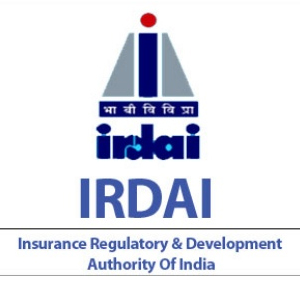 23-12-2020
23-12-2020
IRDAI may not ban but may tweak sale of credit-linked health policies

 Insurance Alertss
Insurance Alertss|
23-12-2020
|
IRDAI may not ban but may tweak sale of credit-linked health policies
What could come as a huge relief for general insurance companies, Insurance Regulatory and Development Authority sources told CNBC-TV18 that the regulator may not bring a blanket ban or prohibition on the sale of credit-linked health insurance products. Instead, IRDAI may consider tweaking the mechanism in which credit-linked health insurance products are sold in the country, the sources said.
On December 2, CNBC-TV18 had reported on IRDAI considering a proposal to ban credit-linked health insurance products. As per the sources, the proposed move was opposed by the General Insurance Council or GIC. It’s a common practice to have a life insurance or a credit-linked health insurance policy like a critical illness policy as collateral for securing a housing or a vehicle loan from any housing finance company (HFC) or a non-banking finance company (NBFC). The insurance policy acts as security for the lender as the claims from the policy can be used for repayment of the loan installments in case the policyholder loses his life during the loan repayment duration.
According to the sources, IRDAI may mandate general/standalone health insurance companies to charge a premium on credit-linked policies based on Diminishing Sum Assured basis. What this means is that the sum assured and the premium charged on a credit-linked policy should come down as the policyholder repays his loan installments. Currently, general/standalone health insurance companies continue to charge premium on the original sum assured which is fixed when the loan is taken, irrespective of payment of loan installments falling.
To simply explain this, if an individual takes a home loan of Rs 1 crore, then the sum assured on the credit-linked health insurance policy put against the loan would also be equivalent to the loan amount, which is about Rs 1 crore. He is charged a premium of 0.2-0.25 percent premium, which means Rs 20,000-25,000 annually on the policy. Assuming he pays Rs 30 lakh out of the total loan amount of Rs 1 crore over the next three years, his sum assured still remains the same and hence the premium continues to be charged on that sum assured.
Under the new Diminishing Sum Assured model, if the individual pays 30 lakh over three years out of his total loan of Rs 1 crore then the sum assured would also reduce by Rs 30 lakh and the premium (0.2-0.25 percent) would be charged on the balance Rs 70 lakh. Most industry experts CNBC-TV18 spoke to suggest that though the tweak is negative for the general insurance industry, it is still better than a complete ban/prohibition on credit-linked health insurance products.
According to Prayesh Jain, Lead Analyst, Life & General Insurance, the proposal remains a negative for the general insurance sector but the impact would be much less as compared to the original proposal of entirely banning credit-linked health insurance policies. Speaking to CNBC-TV18, Jain said that the new proposal could still negatively impact ICICI Lombard’s GDPI by 200 basis points, this compared to a hit of 5 percent under a blanket ban. Also, the new tweak may negatively impact ICICI Lombard’s Combined Ratio and profitability by 35-40 bps and 4-5 percent respectively as compared to a 100 bps and 8-10 percent impact on Combined Ratio and profitability respectively under a complete ban.
Another area of concern for the insurance industry is also if the same tweak gets extended to the life insurance sector under which premiums charged on credit-linked life insurance products are calculated on Diminishing Sum Assured model. HDFC Life has the highest share of credit life at 9 percent of APE in FY20.
Source: CNBC TV18
